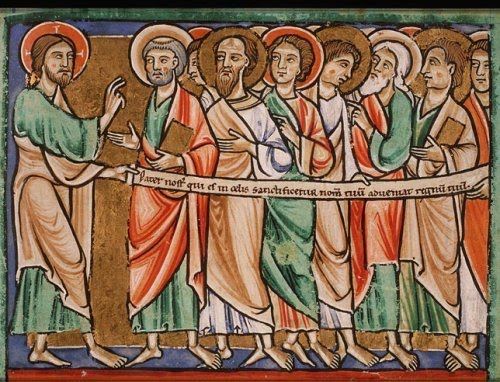Message of Abbot Paul - Wednesday - 31st January 2024
Abbot Paul • January 30, 2024

On January 31st the Church remembers St John Bosco, the 19th century Italian priest, educator and writer, who dedicated his life to the education of children and founded the Salesian Congregation to that end. He was born into extreme poverty, so he dedicated his life to the Christian education of the poorer sections of society, especially among children who had been abandoned or left as orphans. He worked as a shepherd in his childhood and what rudimentary education he received was from his parish priest. He is greatly loved and admired all over the world by Catholics and non-Catholics alike.
Today we read about a visit of Jesus to Nazareth, (Mk 6: 1-6). “Jesus went to his home town and his disciples accompanied him. With the coming of the sabbath he began teaching in the synagogue and most of them were astonished when they heard him.” Jesus is not alone but with his disciples and they must have arrived a few days before the sabbath, which begins at sunset on Friday evening. As usual, he is invited to speak in the synagogue and his teaching causes a stir: the congregation is astonished. It’s hardly surprising, then, that they begin to question. “Where did the man get all this? What is this wisdom that has been granted him, and these miracles that are worked through him? This is the carpenter, surely, the son of Mary, the brother of James and Joset and Jude and Simon? His sisters, too, are they not here with us?” They hear the wisdom that comes from his lips and see the many miracles he has performed. They have no doubt about what they have seen and heard, but what is the source of this knowledge and power?
They know him to be a carpenter, the son of Mary, and they know his brothers and sisters. These could be close relatives, cousins and the like, or extended family. They could be older than Jesus, the children of Joseph by an earlier marriage. The fact that Joseph isn’t mentioned would suggest that he is already dead and that Mary is a widow. That is the ancient belief of the Church. Sadly, the wisdom and miracles count for nothing, for Mark tells us, “And they would not accept him.” He then goes on to say, “And Jesus said to them, ‘A prophet is only despised in his own country, among his own relations and in his own house’; and he could work no miracle there, though he cured a few sick people by laying his hands on them. He was amazed at their lack of faith.” This lack of acceptance by his own townsfolk results in his inability or unwillingness to perform miracles, except for the healing of a few sick people. Their lack of faith amazes him. To date he has been rejected by others, such as the scribes and Pharisees, the Herodians, even his family, but now it’s his own townsfolk too. This is an object lesson for the disciples: rejection should not hamper the mission that Christ and his followers have been given by God. Obstacles are there to be overcome. The mission must go on. God’s plan of salvation cannot be thwarted. This is an object lesson for us as well, who are so often discouraged from participating in the life of the Church and in her mission to proclaim the Gospel. Lord Jesus, grant us the courage to do your will and to share our faith openly with others. Amen.









